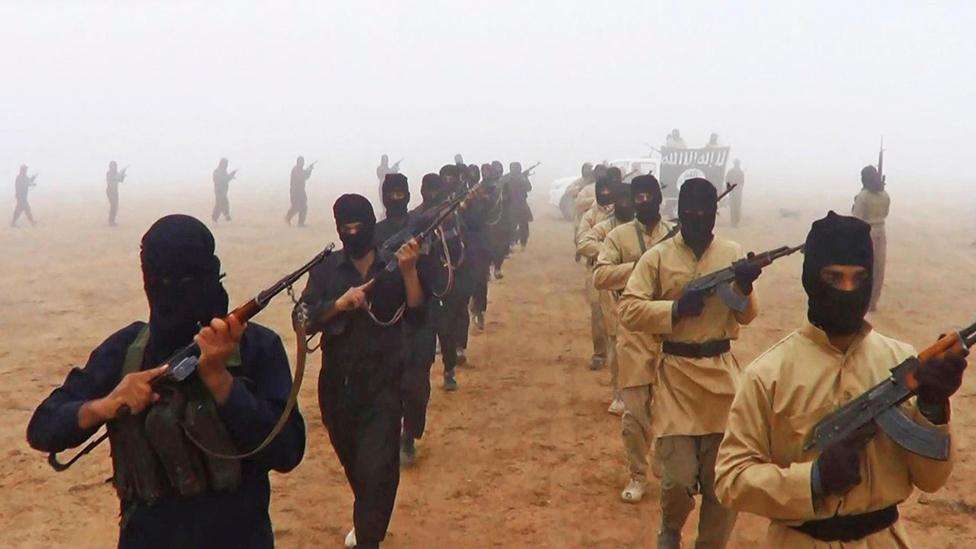In light of recent Reuters article alleging that northern Ghana has emerged as a logistical and medical hub for Islamist militants, the Ministry of National Security has come forward, unequivocally denying these allegations.
Despite the denial, the controversy continues to stir questions among security experts and the general public. Providing a nuanced view on the allegations, Mr. Richard Kumadoe, a security consultant and fraud prevention expert, shed light on the complexities surrounding the issue in an interview with Vaultz News.
“If anybody says terrorists have been coming to Ghana for medical care for some time now, the answer is yes.
“If anybody says terrorists come to Ghana and they may have the opportunity to buy arms and smuggle them out of the country, the answer is yes.”
Mr. Richard Kumadoe, Security Consultant
However, Mr. Kumadoe clarified that these possibilities do not imply that Ghana serves as a deliberate logistical hub for terrorists, adding that “there is no particular location in any part of the country, particularly the north, where terrorists have built houses or tents and remain there as a group with their weapons.”
He believes the manner in which Reuters presented the information has led to a skewed perception of Ghana’s security status, inadvertently undermining the efforts of the Ghanaian government to keep border security under control.
Geographically, Ghana shares borders with Burkina Faso, which has grappled with a worsening terrorist insurgency over recent years. The transnational nature of terrorism in West Africa complicates matters for Ghana and other countries in the region.
Border towns in northern Ghana are particularly vulnerable due to their proximity to Burkina Faso, making them susceptible to cross-border crime, illicit trade, and, potentially, isolated militant activities.
Mr. Kumadoe noted, “Some fuel stations have one leg in Ghana and another in Burkina Faso. People cross borders regularly to access food, water, and other essentials.”
He elaborated that the fluidity of these border towns often makes it difficult to distinguish between regular cross-border movements and potential terrorist activities.
Hence, it is essential for Ghana to strengthen security intelligence and monitoring systems along its northern borders to detect and address potential threats swiftly.
Need for Strategic Surveillance and Preparedness

Mr. Kumadoe also emphasized the need for Ghana’s National Security Ministry to update its risk assessment and preventive measures, especially given the cross-border nature of terrorism.
He stated that this incident serves as a “wake-up call” for increased vigilance, particularly in areas where terrorism and other cross-border crimes overlap. The expert recommended that the government prioritizes monitoring, intelligence gathering, and proactive measures to address any emerging threats.
“Government needs to establish who the people are that come here, how they come, and where they stay. They need to know the nature of the businesses these individuals engage in.”
Mr. Richard Kumadoe, Security Consultant
Mr. Kumadoe acknowledged that terrorism is an evolving threat that requires constant vigilance, adaptation, and an effective preventive framework that involves both security forces and border communities.
Mr. Kumadoe also pointed out that the high-risk elements stem from Ghana’s illegal gold mining or ‘galamsey’ operations. The informal nature of this industry makes it vulnerable to criminal activities, including possible funding sources for militant groups.
He called for more stringent monitoring of galamsey sites and the illegal arms trade to curtail these risks.
Public Awareness and Community Collaboration

In light of the Reuters report, there is a renewed call for increased public vigilance and cooperation with security agencies. According to Mr. Kumadoe, building trust and educating communities along border regions about potential signs of suspicious behavior can help enhance national security.
He emphasized the need for ongoing public awareness campaigns to ensure that civilians know how and when to report any unusual activities. “The general public will have to help law enforcement agencies… level of collaboration and awareness creation is important,” Mr. Kumadoe asserted.
He urged the government to publicly communicate its actions regarding the issue, reassuring citizens about the vigilance and robustness of Ghana’s security apparatus.
He again highlighted that many border residents have close ties with neighboring towns across the border, making it challenging to detect potential threats without clear guidelines and cooperation.
Community awareness is essential in preventing militants from exploiting Ghana’s borders as they navigate the region.
“I think the government will have to wake up to their responsibilities and do what they have to do to ensure national sovereignty guarantees are achieved and public safety guarantees are not breached by any person or any group of people.”
Mr. Richard Kumadoe, Security Consultant
The alleged activities of terrorists in Ghana—whether logistical, medical, or otherwise—reveal a complex issue that calls for a balanced response.
A strategic approach that incorporates transparency, community engagement, and stringent border control measures can help Ghana maintain its security while demonstrating to the public and the world that it is taking these allegations seriously.
The government’s denial of a terrorist “base” in northern Ghana may be accurate, but it must address the broader implications of transitory terrorist activities, using this moment as an opportunity to fortify Ghana’s defenses against regional threats.
READ ALSO: IMF Board Set to Review Ghana’s Economic Programme for $360 Million Disbursement



















